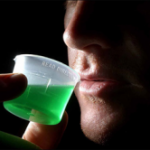Early Stage Suboxone Drug Rehab: Why Residential Treatment Programs are More Effective
As of the first time using opiates, the brain readily adapts to the drug’s effects on neurotransmitter production. Over time, the brain’s chemical pathways take on a whole new configuration that relies on a continuous supply of opiates. After months or years of opiate abuse, physical dependency and addiction have taken a firm hold over a person’s physical and psychological processes.
Once the decision is made to overcome opiate addiction, addicts must contend with the damaging effects of the drug on the brain’s functional capacity. This damage not only impairs a person’s efforts on a physical level, but on a psychological level as well affecting his or her thinking, emotions and behaviors throughout any given day.
Suboxone drug rehab offers recovering addicts much needed physical support in terms of restoring the brain’s normal chemical state. While Suboxone drug rehab can be done on both a residential and outpatient basis, the psychological aftereffects of chronic opiate use still exert a hold on a person’s ability to follow-through on principles learned in treatment. For these reasons, residential Suboxone drug rehab offers the most effective treatment environment during the early stages of recovery.
Relapse Potential

Residential treatment provides a structured environment where patients can learn coping strategies and avoid triggers.
People recovering from chronic opiate addictions live with a high risk for relapse, especially during the early stages of recovery. According to Community Care Behavioral Health Organization, the brain’s warped chemical makeup continues to require opiates in order to regulate body functions in a normal fashion. In the same respect, opiate effects on the brain’s reward system have created a psychological dependency where a person’s thinking patterns, emotional responses and behaviors have all fallen into a pattern that’s designed to support ongoing drug use.
Under these conditions, a person remains highly susceptible to drug-using triggers and must contend with strong drug cravings on a continuous basis. He or she not only needs some form of medication therapy, but also a highly structured environment in which to develop healthy coping strategies for overcoming opiate addiction’s hold. Residential Suboxone drug rehab treatment best addresses these essential treatment needs during the early stages of recovery.
Residential Suboxone Drug Rehab
Residential programs in general offer the most intensive form of treatment in terms of the 24-hour monitoring and supervision these programs provide. Anyone coming off a chronic opiate addiction requires the type of structure offered by residential Suboxone drug rehab in order to break the destructive behaviors and habits that promote ongoing drug use. In this respect, residential programs offer a person the best chance of getting a firm foothold in recovery.
As a treatment drug, Suboxone helps restore a normal chemical balance in the brain by supporting damaged brain chemical pathways, according to the Substance Abuse & Mental Health Services Administration. Subsequently, a person experiences a considerable reduction in drug cravings and starts to feel more like his or herself again. The combination of Suboxone’s therapeutic effects and the structured treatment environment found in residential Suboxone drug rehab offers the best solution in terms of addressing the biggest challenges addicts face during the early stages of recovery.
If you or someone you know are considering Suboxone drug rehab and have more questions about available treatment options, please don’t hesitate to call our toll-free helpline at 888-646-0865 (Who Answers?) to speak with one of our addictions specialists.





